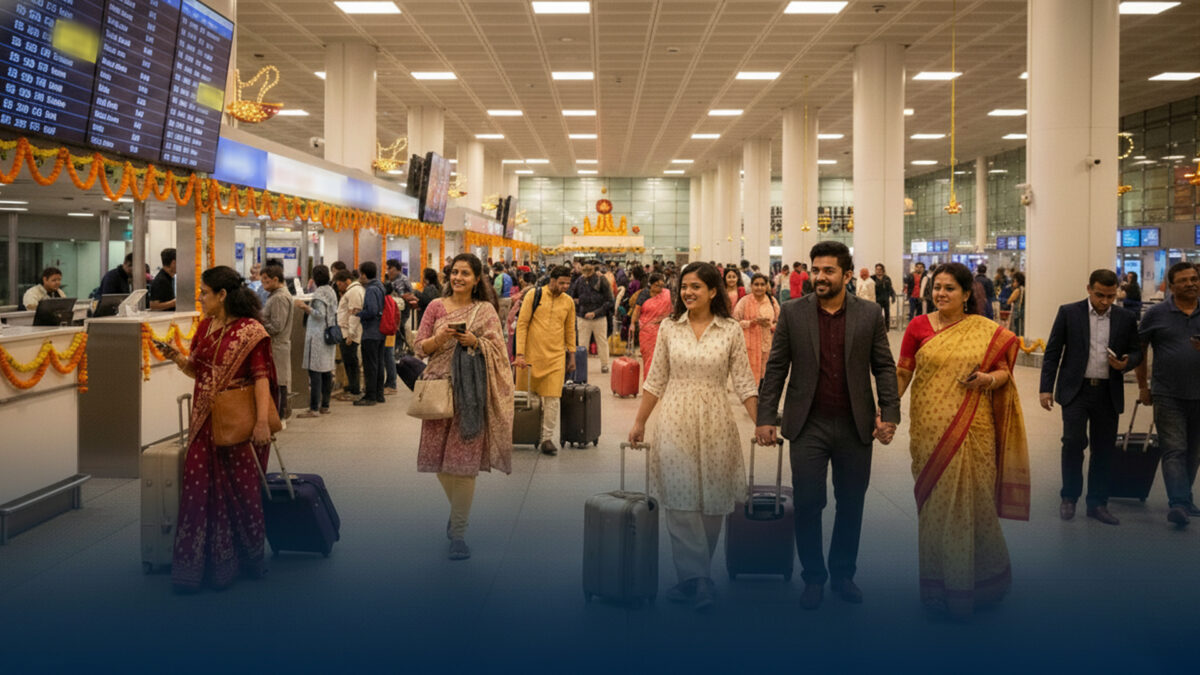India’s aviation regulator has stepped in to monitor a sharp rise in festival-season airfares after domestic carriers announced the deployment of 1,762 additional flights to meet Diwali demand. The Directorate General of Civil Aviation (DGCA) has asked airlines to expand capacity and keep fares “reasonable” as millions of passengers plan travel around the festival, a move officials say is aimed at preventing exploitative pricing during one of the busiest travel periods of the year.
Airlines including IndiGo, Air India, Air India Express and SpiceJet have been urged to boost seat supply across key domestic routes, with the regulator coordinating closely with carriers to ensure the additional schedules are timed to ease peak-date congestion rather than simply capitalise on demand spikes.
The DGCA’s direction follows widespread reporting of double-digit percentage increases in fares on popular city pairs as travellers book return trips for family reunions and holiday breaks.
Industry officials said the extra 1,762 flights are intended to provide immediate relief on chokepoint routes where inventory shortages were pushing the lowest available fares far above typical levels.
While airlines argue that dynamic pricing reflects market realities — higher demand, seasonal aircraft utilisation and rising operating costs — regulators and consumer advocates have warned that unchecked surges can place an unfair burden on middle-class families who travel for festivals.
The DGCA has also highlighted non-price measures intended to improve traveller outcomes, including better management of airport slot use and monitoring of how carriers allocate seats across fare bands.
Officials say they will maintain an online monitoring mechanism that allows passengers to track fares and flag suspected instances of unreasonable pricing, though they stopped short of imposing direct caps, noting that India has not regulated airline fares since the mid-1990s.
Market watchers caution that adding flights is only a partial remedy: capacity increases must match route-level demand and be sustained through the peak window. If airlines concentrate the bulk of extra flights on a handful of busy sectors, relief will be uneven and some regional travellers could still face steep tickets.
Travel agents say early-bird windows have already closed on many routes, and last-minute booking pressure typically magnifies price volatility.
Passengers planning Diwali travel are being advised to compare itineraries, consider alternate airports and flexible travel dates, and watch for last-minute seat releases as carriers adjust schedules.
The DGCA’s intervention, while measured, signals growing regulatory sensitivity to festival-time pricing and reflects lessons from earlier events such as the Mahakumbh and other mass gatherings, when targeted capacity additions helped moderate fare spikes.
As the peak travel days approach, the regulator said it will continue to engage airlines to ensure the announced 1,762 flights translate into accessible, affordable seats for as many travellers as possible.
Also Read: Perplexity’s Comet AI Browser Now Free for All Users
